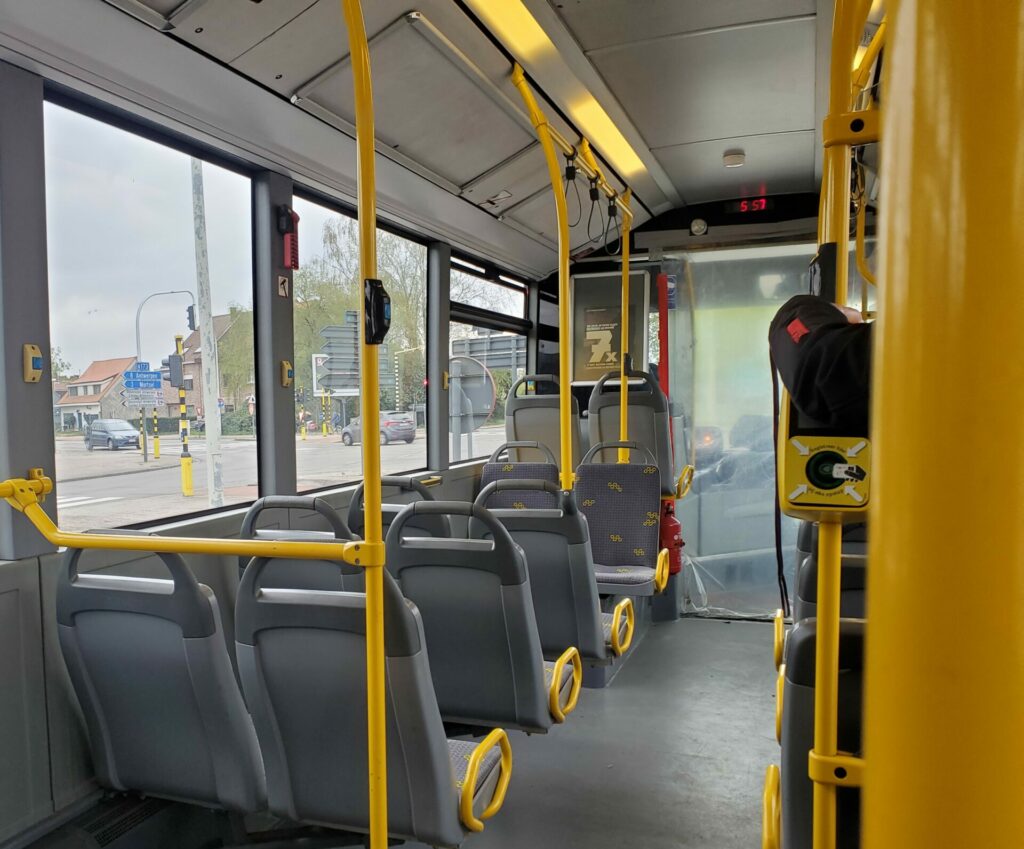After two years of the Covid-19 pandemic, transport company De Lijn has only seen 65% of its travellers return compared to 2019. Absent drivers, cancelled rides and savings continue to cause disruptions for customers.
De Lijn is fighting for its survival, according to Traffic Minister Johan Sauwens: “We’re at the end of our tether.” He says they have gone too far in cutting costs. “We can hardly run a bus with less than one driver.”
35% of travellers who stopped using public transport due to the pandemic still have not returned today, more than two years after the start of the health crisis, De Morgen reports.
‘Stigmatisation’
Director-General Ann Schoubs attributes this to teleworking, the increasing popularity of cycling and partly down to the ‘stigmatisation’ of public transport, where the mask mandate was only lifted last week.
“People didn’t have to wear a mask anywhere, except on the bus and train,” she said.
Schoubs hopes that the feeling of insecurity among doubters will now decrease, although the fear of contamination does not seem to be the most acute problem for the bus company.
Persistent problems
Surprisingly, satisfaction figures for 2021 seem hopeful, as 65% of travellers gave De Lijn a score of 7 in 10 in our higher. But the company struggles with persistent problems that cannot be cured, such as a lack of drivers and cancelled rides.
In April, for instance, 1 in 50 buses did not depart because there were no drivers available. In half of the cases this was due to the pandemic, in the other half to a strike. On Tuesday, tram and bus services were also partially paused due to a national strike.
Related News
- Give decent wages to those with job and work to those without, Greens say
- National strike: Disruption to Brussels waste collection
“We do not question the power of striking, but we do call on people not to do it too soon,” says Minister Sauwens. He is tired of the fact that De Lijn is “a punching bag that anyone can knock on”.
“Trams in Antwerp already have to drive slower because the tram tracks are in bad condition,” says Schoubs. “We also have problems in Ghent. The investment backlog is starting to take its toll.”
Negotiations
The Flemish government and De Lijn are currently engaged in negotiations on a new management contract for the coming years. In addition to a bigger budget, De Lijn demands extra flexibility in determining the offer and the rates.
Public transport has taken a hit due to Covid outside of Flanders, too, as the NMBS, the Brussels STIB and other European organisations are still climbing out of the trough.

